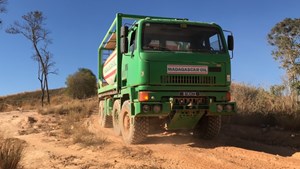Madagascar Oil SA to supply Tsimiroro heavy oil to its local market
Turning to the local market is in line with the company's commitment to support the local and national economy and employment. Knowing in particular that the purchase by these industries of heavy oil from Tsimiroro currently allows them to make nearly 25% savings on their fuel purchases. The lack of heavy oil on the market forces many industries to use gasoil, which, in the current context of global energy crisis, is purchased at a much higher cost.
Contracts have been signed with several industries operating in the agribusiness and textile sectors. For some of the customers, the company has provided them with storage tanks, which would allow them to store part of the product on their site. This, in order to prevent any possible rupture due to the critical state of the roads linking Tsimiroro to Antsirabe. Through these investments, Madagascar Oil is helping to secure the supply of these industries and ensure the continuity of their activities.
According to a representative of Madagascar Oil SA's clients in the agribusiness sector: "The health crisis has made us realize that we are extremely dependent on imports. That's why we are ready to support local energy production projects here in Madagascar like the one in Tsimiroro. We use it to run a boiler that supplies our factory with steam, and so far, the tests we have carried out with this product have been conclusive."
These first sales contracts allow the project to gradually take its place on the domestic fuel market. This step will be a milestone in the development of this major Malagasy oil project.
It should also be noted that this is a Premium quality HFO product. Its low sulfur content of 0.3%, makes it a much cleaner product than those often seen on the market. Its use has a minimal impact on the environment, reduces the cost of engine maintenance, and increases engine life and efficiency. Moreover, as it is a locally extracted product, the HFO from Tsimiroro could be sold at a very competitive price. And if the roads connecting the exploitation site to other regions were to be rehabilitated, this price could still be much lower than those currently applied. Rehabilitating the RN1BIS would indeed mean opening the energy road for Madagascar's energy security.



